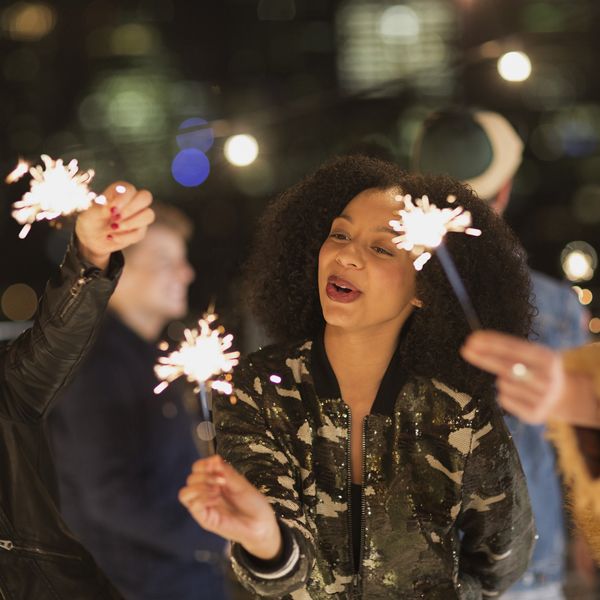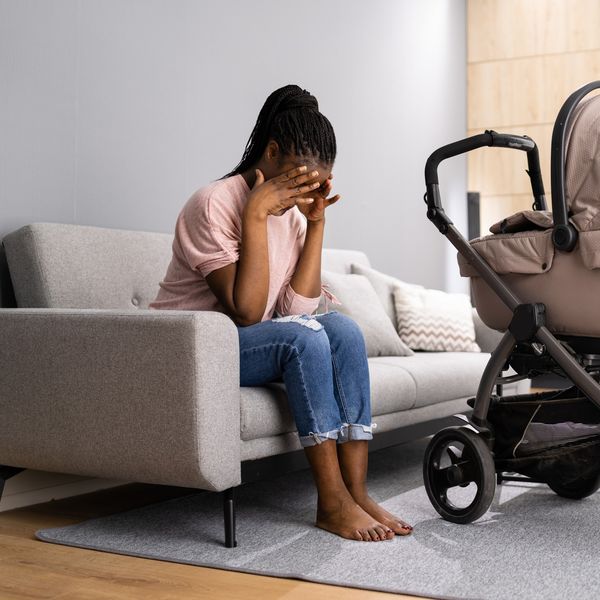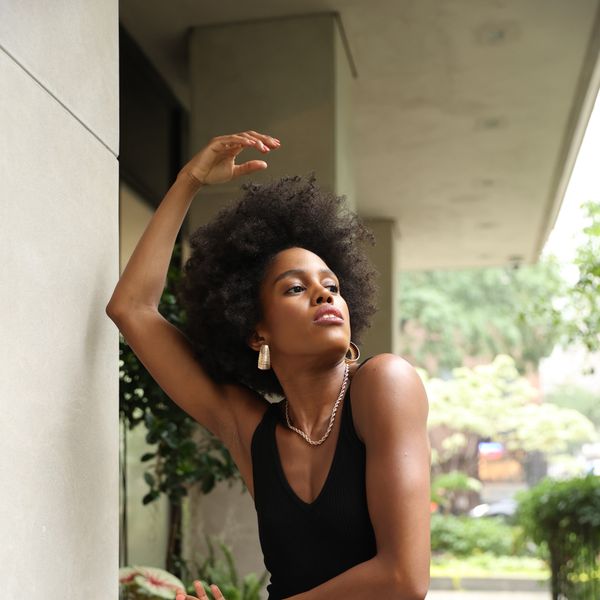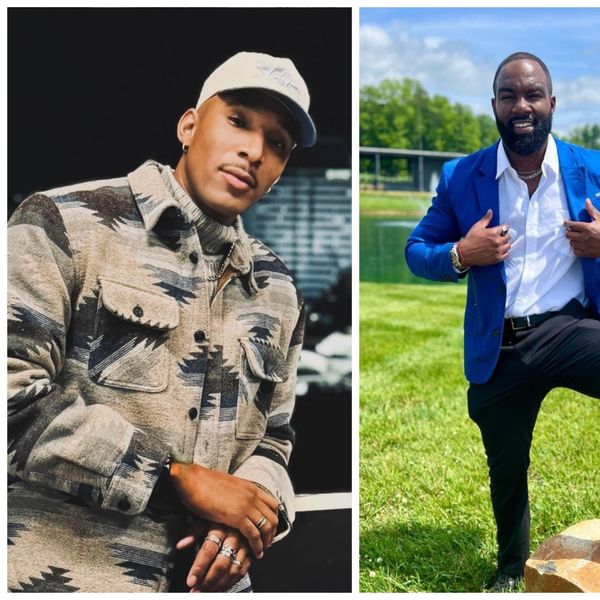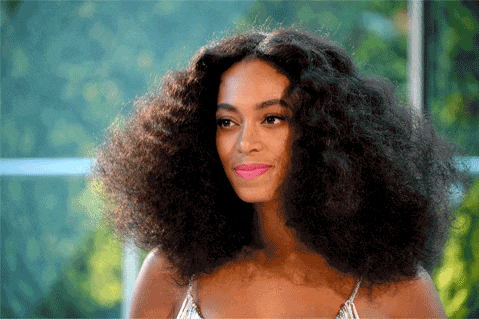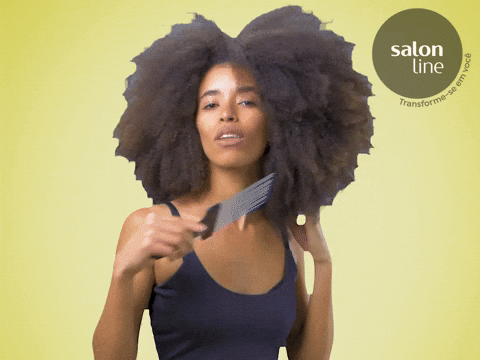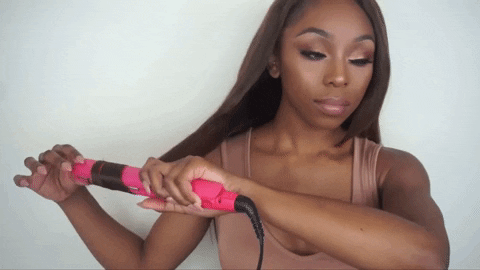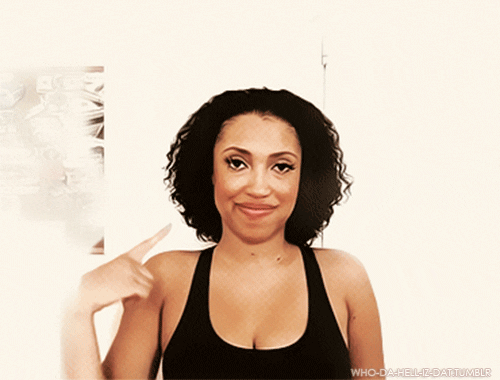These 4 White Women Discuss Racism. And You're Going To Want To Read What They Have To Say.
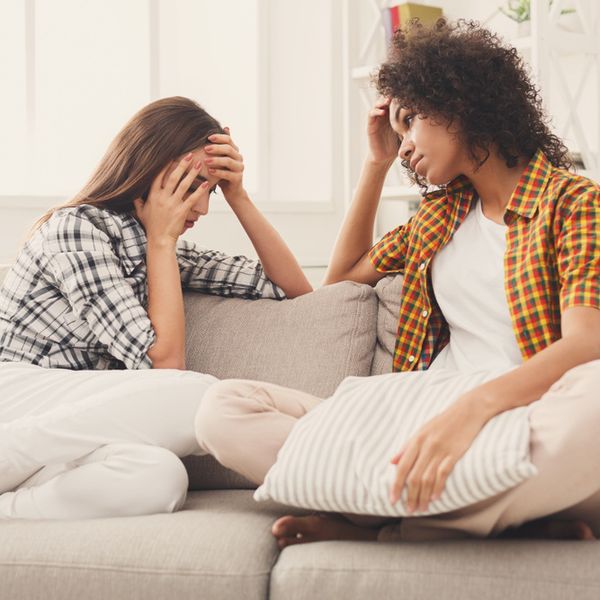
Like so many of us, I've experienced my fair share of racism as a Black woman in America. Growing up in the South, it was a normal day to pass hundreds of Confederate flags and a number of white supremacist statues on my way to school (blatant racism). And in Chicago, it's completely normal to drive past a corrupt police department on an ignored and under-resourced south side and pull up to a multi-billion dollar invested, highly-protected, and resourced downtown/northside, on the way to work (systemic racism).
My first actual experience with racism, a white lady called my sister a “nigger" at a swimming pool for accidentally splashing her son. We told our mother what happened, and her natural mother-bear mode instantly activated, as she jumped up to confront the lady. Instead, her husband jumped in my mother's face and said these words that still sting to this day: “Get the fck out of here or we're going to be hanging some heads tonight." I was 6.
My mother did something I had never seen her do before, she backed down. I remember being confused. My mother never backs down.
Far too many of us have the same experiences, but outside of anger, we're never sure where to start to end it. We've made some progress, but how can we continue making waves within the uprising that is happening today?
One way: talk about it. Most importantly, talk about it with white people (and by that I mean actually have the conversation and not some Facebook debate).
So, we took the time to ask a group of white women (from varying ages and backgrounds) their thoughts on the current state of the country. We also asked them to discuss the racism that they've witnessed in the past, and what they plan to do to help fix it. Each woman respectfully and honestly shared their very real experiences with us, which may be triggering to some. But again, it's real. So, let's have this very real conversation together.
Because as the great queen muva, Rihanna, says: "This is their problem too...so pull up."
(some responses may be cut or edited for clarity, but never to change their narrative).
De'Shae | 34 | Little Rock, AR

Photo Courtesy of De'Shae Bumgardner
The first time that I can remember even realizing that race existed was when I was about four years old. One of my parents told me that they would disown me if I were to ever date a "n***er". I was extremely confused because, sadly, that was also the name of my pet cat. I thought, Why in the world would they think I would want to date a cat?!
When they told me that the word stood for Black people, I was even more confused...
My Thoughts On The Current State Of The Country
I have a lot of mixed emotions about the current state of the country. On one hand, I feel extremely proud of the people who are standing up against racial injustice, but on the other, I hate that in 2020, racial injustice is still happening. And it doesn't help that we have a president whose words and actions fuel white supremacy, which is a direct threat to my son's life and the lives of all people of color. His fuel has also ignited the racism within so many friends and family members, who I've had to cut ties with. Before the Trump presidency, my son had never been the subject of direct racism. Since then, I have gotten several racist death threats from supposed strangers.
I try to be optimistic about the future and I hope it will get better with time, but I also have my doubts and I wonder if I want to wait around to see if it ever happens.
My Inspirations To Denounce Racism
My biggest inspiration is my son. Before having him, I thought I was doing enough by just loving Black people and hating the N-word. After having him, something ignited inside of me that has made it one of my life goals to do everything in my power to help make this country a safer and more equal place for him and all Black people.
I wish I could be with my son on the battlegrounds at all times, but I can only help equip him with the tools to win. Tools I had to gain first; tools I have never, as a white person, been required to use before.
One of these tools is my voice and I use it by speaking out as much as possible.
An Experience Witnessing Black Women's Racial Journeys
I was in second grade when my best friend joined my mom and I to go see a movie. The place was packed, so my friend who is Black sat in my mom's lap. Several white people behind us voiced their opinion about how disgusting they thought it was to let a Black person sit in her lap. They called her a "n***er". She didn't shed a tear, but I did. I had never witnessed that type of situation. When we got back home and discussed it further, and she basically told me that she had been called that name so much, that she was numb to it.
She was nine years old and already had a racial journey. From there on out, I realized how incredibly brave Black people are forced to be.
Supporting Black People In My Daily Life
I support Black people by always speaking out. I try to listen and learn from those in my life. I use my white privileges to intervene when my Black friends are mistreated. I intentionally shop with Black businesses and donate to various causes that help the Black community.
I have also tried my best to support my Black son. When I realized that his public school was only teaching him a watered-down version of Black history for one month a year, I pulled him from school and began homeschooling him. I currently work full-time and have been homeschooling my son for the past two years. Instead of once a year, he now learns about Black history and Black excellence almost daily.
What I Wish Black People Knew About Me
I honestly feel extremely understood and accepted by all of the Black women that I have encountered. If anything, I would hope they understand that I am on their side, I see them, I hear them, I highly respect them, and I strive to learn more about how I can help them.
Bridging The Gap
I think that both sides having an open and honest dialogue helps tremendously. I learned so much from just comparing how police have treated me versus how my friends of color have been treated in the same situations. I have gone to a gas station before and the clerk told me that my $50 bill was counterfeit (exactly the same as George Floyd). But I was THANKED for my "help." I was not reprimanded in any way.
So, I think the biggest thing that white people can do is listen to learn, instead of listening to respond. Also, learning history that was not white-washed opened my eyes about a lot of things that I had previously misunderstood.
Kim | 33 | Metairie, LA
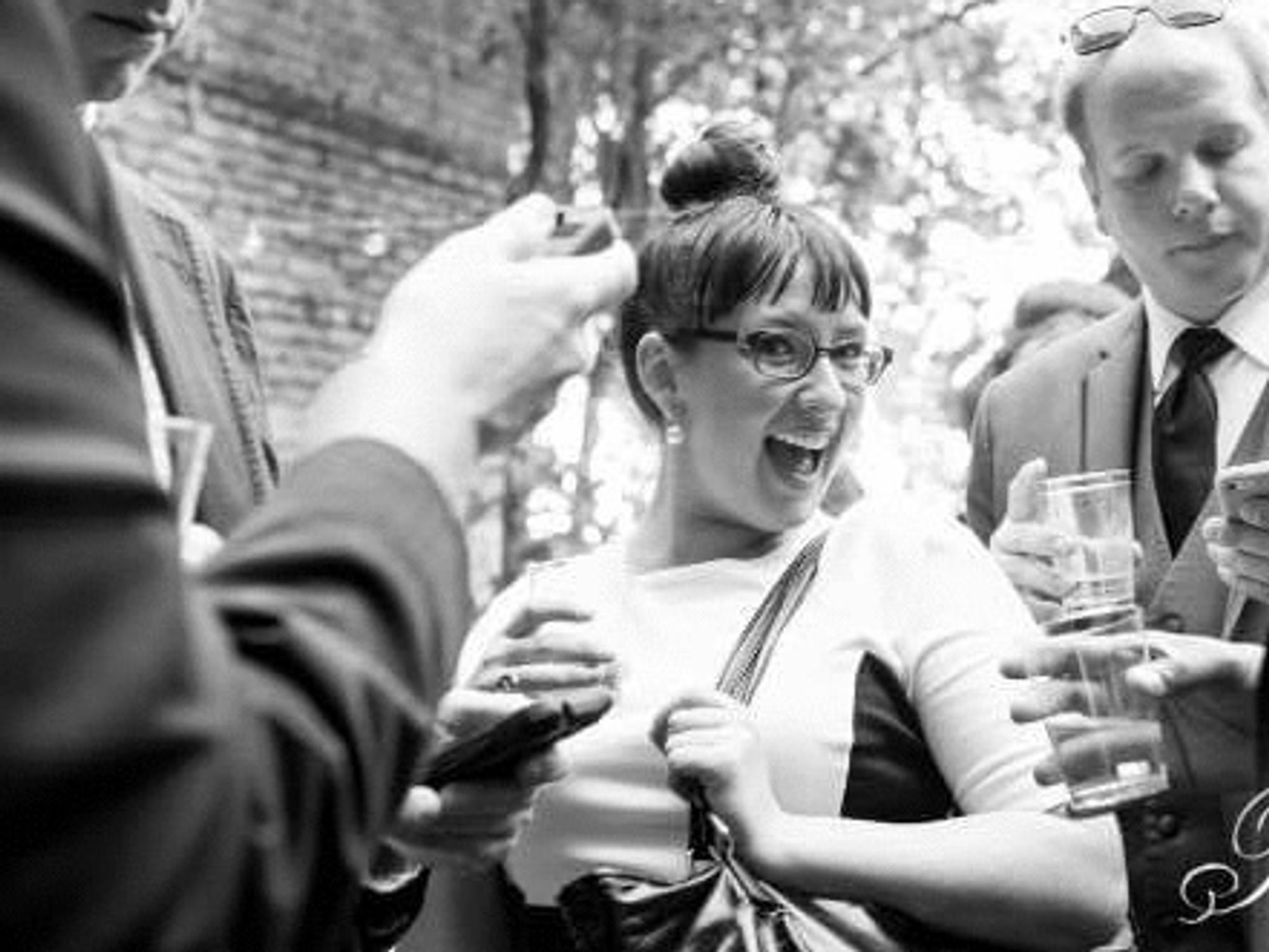
As a child, I was used to being one of the only white girls around.
I noticed that when I went into the stores with my friends, that I wasn't followed around the same way they were. That's what made me realize that me being white made people around me feel a different way towards me...
My Thoughts On The Current State Of The Country
I'm excited/scared about the current state of this country. I'm excited to see that people have become fed up with the current system of oppression. I wish there was a better way to convey our disgust with the current system, but since the powers that be have yet to listen to peaceful protests, this is where we are.
My Inspirations To Denounce Racism
I want to say that I've always been receptive to my Black friends' issues. I certainly know that I get extremely upset when they are upset but I try to refrain and just listen.
An Experience Witnessing Black Women's Racial Journeys
I grew up in South Georgia where I was raised Southern Baptist. I would go to my Black friends' church and would always feel welcome. When I brought my Black friends to my mama's church, the energy was not comparable in the least. I KNEW something was off.
Supporting Black People In My Daily Life
I try to closely observe and read up on issues, rather than ask my friends to educate me because why should I ask them take on more emotional labor than they need to?
What I Wish Black People Knew About Me
There's not really much that I expect for Black women to understand about me. It's not their job. I get frustrated when white people expect Black people to explain to them their fucking humanity because IT'S NOT THEIR JOB! And if white people expect them do it, pay them for the emotional labor.
I guess I'm saying that I want Black women to know that they don't owe me anything and I will always be here to listen. I've learned that I'm way better at getting my point across in person, so I try to not explain anything on social media. I tend to be curt and sarcastic when speaking with an "all lives matter" audience, and that doesn't help anyone.
Bridging The Gap
I don't think that Black people really need to do much to bridge the gap. This is a responsibility that solely rests on our souls. I mean, historically, it was white people who started this mess, so why is it so hard for them to put in the emotional labor and see things in a different light (as you can see I am big on "emotional labor")?
Listen, I know that as a white woman that I have privileges. And I will try my best to exercise those privileges in a way that protects my Black friends and amplifies their voices. Always.
Antonia | 57 | Prince George’s County, Maryland

I think I was four or five years old, I lived in an area where schools were integrated—and back in my day, this was a big deal. I was paired with a Black girl to practice reading, and my mother explained to me that I was probably going to be a white N-word (she said the word, obviously). I didn't understand what that meant, but I knew it was bad...
My Inspirations To Denounce Racism
I have a big mouth sometimes, which is great for helping me show my ass on this subject. But ultimately, I'm inspired by the life of Kenyan Nobel [Peace Prize recipient] Laureate Wangari Maathai, who helped bring about political change and environmental restoration by having thousands of small conversations with women. She talked a lot about taking small steps and doing little actions—hers was planting trees.
I try to stay in the background and put Black women forward to speak, and I think a lot about how Maathai did her work over 30 years and ended up changing so much for her country.
An Experience Witnessing Black Women's Racial Journeys
A couple years ago, I was working with a group of Black teenagers in a summer program, and we were discussing how when doing sustainability outreach, we needed to consider the cultural context of our audience. I made recommendations for best practices but a colleague of mine interrupted to say she didn't feel that Black customers being accused of shoplifting was necessarily a “race thing" because similar things happened to her elderly mother.
But one of the young girls in the program was incredible. She talked about how white women could dress up or down and shift how people see us, but that she could never ever take off her skin, so being Black was right at the foreground of how people perceived her every time she walked into a business. She was fabulous, but angry. Determined and focused, and she spoke very clearly about how race and the history of violence against Black people and communities create burdens for her that white people can avoid if they want to. It was hard for my skeptical colleague to take in at the moment, but I think it has stayed with her as it has with me and it let me know that even skeptical people are open to letting in the pain of really seeing how racism affects Black people.
Supporting Black People In My Daily Life
This is a new realization over the last few weeks: I've always been the kind of person who has casual conversations with, oh, the guys in line at Home Depot or wherever, and when there is huge public grief and anger about yet another death in police custody, yet another racist policy enacted whatever, I mention it. I sympathize with them and wish that we could do better, and I listen to them talking about their sadness and anger. I don't know if it helps, but I've had some conversations that left me feeling like perhaps we could someday become one people, a unified community. Of course, then I go right back out into the world, so it's an ongoing thing.
It's not much, and I'm always worried that I'm doing it for cookies, so I don't usually talk about it elsewhere. But discussion is one of the things I can do with Black and white friends, colleagues, or even with strangers at Home Depot. Hopefully, it helps to carry some of the weight and responsibility for all the events that create traumatic stress for Black people in America.
What I Wish Black People Knew About Me
I think Black women have no obligation to try to understand me whatsoever because the weight of history is just crushing. I would hope that my Black friends understand that that weight is on me to fix, especially with the ways in which my mother taught me about race, and to see, in a non-cookie-giving way, how hard I have worked to bear those lessons without passing them on to my children or reenacting them in my daily life. I also think that the legacy of slavery and racist violence has left scars on white Americans and that most white people don't see how that legacy festers and holds them back. I guess I wish Black women could understand that, but frankly, it's irrational and cruel to expect Black women dealing with our current climate of racism to any work into understanding me, or white people generally, so that'll have to wait.
Bridging The Gap
Keep talking. Keep doing the little actions that make your community a bit better, and that improves the lives of children and families. Keep recognizing that white women are often not aware of how race plays into their actions, and finding time for small conversations (including angry ones) that help us get that. And all women need to take care of themselves. The womanist writer, bell hooks, has a great book – Sisters of the Yam – that is all about self-care and has been really helpful for me. We need to take care of ourselves first to be healthy enough to fight on.
Jessica | 27 | Chicago, IL
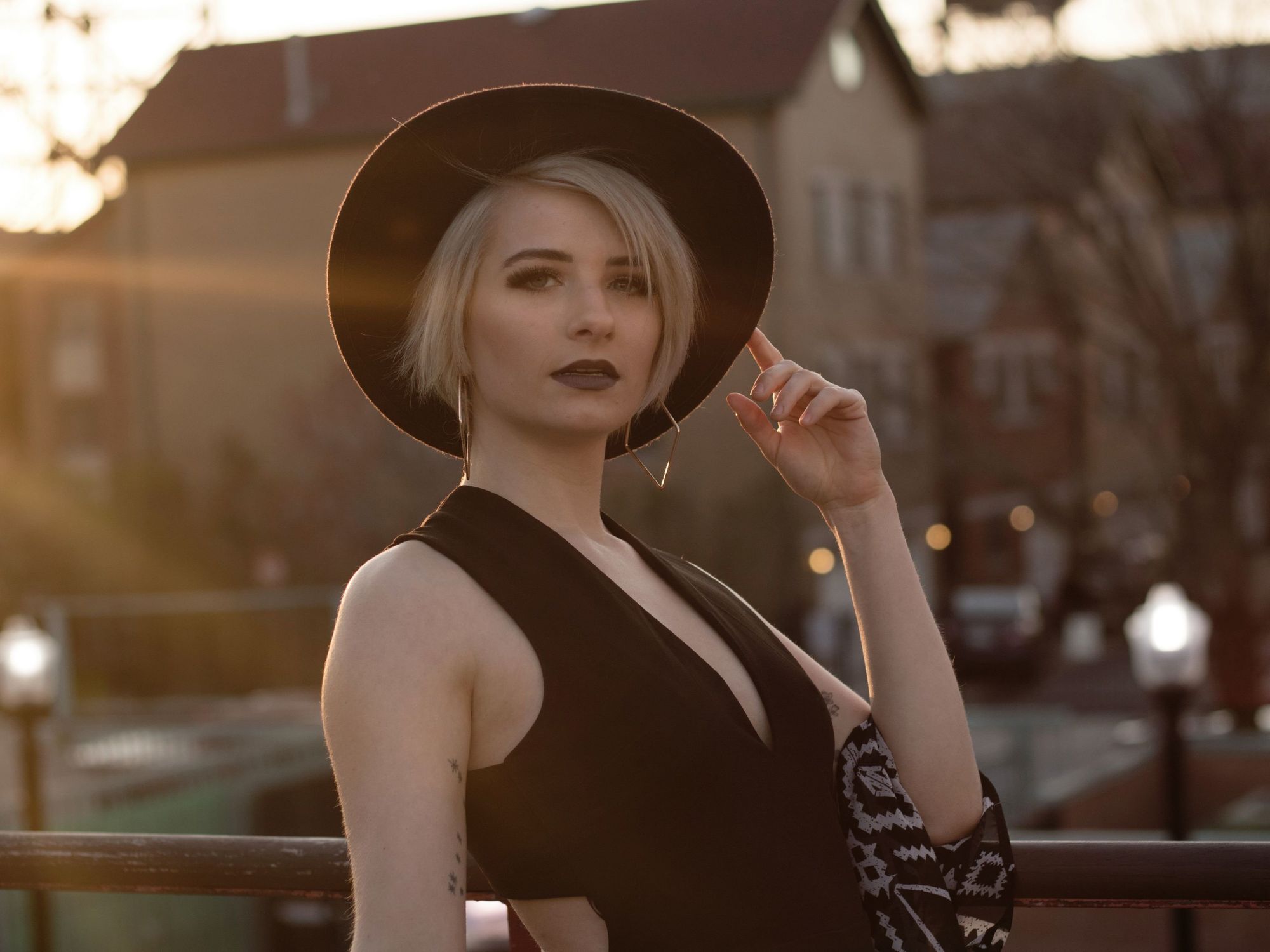
Photo courtesy of @lynx.imagery
Hindsight is 20/20 when you're looking back on 20 years and your mindset has changed so many times. I remember going to a Black classmate's house for a group project around third grade. For whatever reason, it confused me that her family lived in a townhome. It was very odd to me as a child, since every other friend's house I'd been to was an independently-standing house. I don't know if I understood race or saw her race and correlated the difference in homes to her skin color, but somehow I connected those dots. I say this from a tiny Chicago apartment now, too.
But this was one of my first realizations that people can be different...
My Thoughts On The Current State Of The Country
Our country is in shambles right now. Never in our history have we been in the midst of a pandemic when a revolution has started and I know a ton of people are confused about what's going on. Hell, our government doesn't even know what's happening. The Mayor of Chicago has been handling everything fairly professionally though and I feel like she's doing a good job at balancing our quarantine phases with the protests and looting that have been happening this past week.
My Inspirations To Denounce Racism
I'm usually a quiet observer, as my friends can clearly testify. I usually prefer to listen instead of debate with someone. But I was also a part of the Occupy movement back in 2011/2012 and it gave me a voice and reminded me that there is power in numbers, and the numbers are angry this time around. The majority of my activism this time, has been from home, however. I'm so proud of the peaceful protests my city has organized, but there's so much work that can be done on our computers and phones. Petitions need to be signed, emails need to be sent to our representatives, and time and money need to be donated to those on the front line of this movement.
An Experience Witnessing Black Women's Racial Journeys
My best friend is Black, and she grew up in Topeka, KS, home of the infamous Westboro Baptist Church. Topeka is a predominantly white city, with only about 10% of the population being Black. I know things are much different in Kansas from the suburbs of Chicago where I was raised and every time she tells me about something drastic that happened while she was growing up, it shocks me because I was so sheltered in my hometown.
I currently live in a predominantly Hispanic neighborhood and she lives about 10 minutes south in an Asian/Lithuanian neighborhood. This week in Chicago we've had looters coming in from out of town, so the gangs in my neighborhood were actually protecting the businesses and homes to prevent damage. Of course, the neighbors quickly became a protective barrier against the gangs to the Black people who live in the community when I found out that the gangs were attacking people of color for just trying to return to their homes. These are our neighbors and they were being attacked for their skin color by another minority. When I mentioned this to my best friend, she casually said, "Mexicans hate Blacks and they tried to burn down my house when I was little."
Clearly, I was shocked at her casually bringing this up and it made me realize that this country isn't just segregated by hatred between white and Black, but the hatred can sometimes come from other minorities too.
Supporting Black People In My Daily Life
I don't think I've ever treated any Black person in my life differently (except for my best friend whom I smother with love and guinea pig pictures) and I think treating everyone with the same amount of respect and compassion and sense of human decency is a great way to support Black people in our lives. When people around us see these open displays of companionship and camaraderie (especially working in the restaurant industry where we are literally united as a family), I hope it makes them feel less threatened by the differences between and around us.
What I Wish Black People Knew About Me
I feel like I'm not even in a position to preach about myself right now, so I'll keep this short: I grew up (unknowingly back then) surrounded by white privilege and attending mostly white schools. But now, Black women, I empathize with you and your stories. Please tell them to me. I want to hear them. I am still a woman and I know we've all been treated differently just because of that. But I'm on your side and I stand with you.
Bridging The Gap
I recently read an article by Cynthia Schmidt, a UCF columnist, about bridging the gap. She says "It's virtually inconceivable for white folks to have police called on them for merely existing, and because white people are able to surround themselves in white bubbles, it's like we white people are reading the book of racial history and racial current events, while our Black countrymen are watching the film, or harder yet, starring in the film."
So in order for white people to put the "book" down and participate in the history that's acting out in front of us, we need to do research. Our school system has done nothing for our education on Black America.
There are so many books and films and articles to read and watch, and once we have a better grasp on what happened outside of our history textbooks, we can further integrate ourselves into predominantly Black communities, but as guests. We can visit their churches and support their restaurants and other businesses. I also agree with Cynthia when she says, "Black folks do not bear the burden of creating the bridge. They cannot, as it is already hard enough to be Black in America without having to educate white folks along the way. Merely existing as a Black person here is enough work."
Featured image by Shutterstock
This Is How To Keep 'Holiday Season Stress' From Infecting Your Relationship
Hmph. Maybe it’s just me, but it seems like there is something really weird happening in the fall season air (because winter doesn’t officially begin until December 21) that cuddle season is in full swing while break-up season is as well. In fact, did you know that break-ups are so popular during the holiday season that December 11 is deemed Break-Up Day?
The reasons why relationships shift around this time vary; however, I did both roll my eyes and chuckle when I read that a very popular one is because it’s an easy way to get out of getting one’s significant other a Christmas present. SMDH.
Anyway, I personally think that the less shallow folks out here may contemplate calling things “quits” or they at least distance themselves a bit from their partner (and what I’m referring to is serious relationships) due to all of the stress and strain that oftentimes comes with the holidays whether it be financial, familial, due to their tight schedules or something else.
Listen, I would hate for you and your man to miss the fun and happiness of experiencing this time of year, all because you are so overwhelmed or irritated that you can’t really enjoy it. That’s why I have a few practical tips for how to avoid allowing the typical holiday season stress from INFECTING your relationship.
Manage Your Expectations
 Giphy
GiphyUnmanaged expectations. If there is a main reason why the holiday season tends to be so stress-filled for so many people, I’d bet good money that this is the cause. And when you’re in a long-term relationship, expectations can manifest themselves in all sorts of cryptic and/or unexpected ways. You might have relatives who assume that you are going to be with them for Thanksgiving or Christmas when you have other plans in mind. You might be thinking that you are going to spend one amount for presents while your man is thinking something totally different. When it comes to scheduling, your signals may be crossed.
And you know what? To all of these scenarios, this is where clear and consistent communication come in. Don’t assume anything. Don’t dictate anything either. From now until New Year’s, mutually decide to check in once a week, just to make sure that you are both on the same page as it relates to the holidays and what you both are thinking will come along with it. The less blindsided you both feel, the less stressed out you will be. Trust me on this.
Set (and Keep) a Budget
 Giphy
GiphyOkay, so I read that last year, 36 percent of Americans incurred some type of holiday-related debt. Hmph. Last year, there was still some sense of normalcy in this country, chile, so I can only imagine what finances are gonna look like over the next several weeks. That said, since I don’t know a lot of people who don’t find being broke stressful, make sure that you and your bae set a budget and then stick to it this year — no ifs, ands or buts.
Because really, y’all — it doesn’t make sense to deplete savings and/or max out credit cards for a few days of giggles only to be damn near losing your mind because you don’t know how to make ends meet come Dr. Martin Luther King, Jr. Day.
And by the way, this tip doesn’t just speak to things like food and gifts; I also mean travel. If it doesn’t make a ton of sense (or cents) to be all over the place this year — DON’T BE.
Keep Matthew 5:37 at the Forefront
 Giphy
GiphyIf off the top of your head, you don’t know what Matthew 5:37 says, no worries, here ya go: “But let your ‘Yes’ be ‘Yes,’ and your ‘No,’ ‘No.’ For whatever is more than these is from the evil one.” That verse right there? Oh, it’s a boundaries lifesaver! I say that because do you see “maybe” or “I’ll think about it” in there? Nope. LOL. It says that you should tell people “yes” or “no” and leave it at that — and that complements Anne Lamott’s quote, “’No’ is a complete sentence” impeccably well. Yeah, you’ve got to remember that anything beyond a yes or no to a request is privileged information; you don’t owe anyone details or an explanation.
Besides, if you are really honest with yourself, when someone asks you something and you give a “Umm, let me think about it” kind of reply, more times than not, you already know what your answer is going to be — so why not let you both off of the hook? Give your response. Commit to that. And let everyone (including yourself) get on with their lives and schedules.
I promise you that when it comes to those holiday parties, you are pissing more folks off by not RSVP’ing or doing so and not showing up than just saying, “Thank you but not this year” off the rip.
Remember That Your Personal Space Is Privilege Not a Right
 Giphy
GiphyA friend of mine recently bought a new house and invited me over to come see it. He’s a single man with no children, so as I was taking in all of the space that he had, especially as I walked through his finished basement, I joked about relatives coming to live with him. “Hell no” and “absolutely not” were pretty much his immediate responses as he went on to say that some folks even had the nerve to be offended when he told them that he had no intentions on taking DNA in.
Ain’t it wild how people think that your stuff is their right? And yes, that brings me to my next point. Your home is your sanctuary space. If you want to host folks this year — cool. If not, ALSO COOL. Please don’t let folks (family included) guilt you into how they want you to act or even into what they would do if the shoe was on the other foot. You are not them — and as one of my favorite quotes states, “If two people were exactly alike, one of them would be unnecessary.” (A man by the name Larry Dixon said that.)
Hell, my friends? They know that I am good for sending them random things that they need or even want all throughout the year. Coming over to hang out at my pace, though. Uh-uh. Chalk it up to being a card-carrying member of the ambivert club yet I like keeping my living space personal — and I sleep like a baby, each and every night, for feeling that way.
Always remember that your space, your time, your resources, your energy and shoot, yourself period (including your relationship), are all things that are your own. You get to choose how, when and why you want to share them. The holiday season is certainly no exception.
Cultivate Some “You Two Only” Traditions
 Giphy
GiphyIt’s not uncommon for some couples to hit me up after the holiday season to “detox.” Sometimes it’s due to the financial drama (and sometimes trauma) that they experienced. Sometimes it’s because they allowed their relatives (especially in-laws) to get more into their personal business than they should’ve. More than anything, though, it tends to be because they didn’t get enough quality time together and so ended up feeling “disconnected.”
Please don’t let that happen. Listen, I’m not even a holidays kind of woman and yet, I will absolutely sit myself down with some hot chocolate and chocolate chip cookies to enjoy a Hallmark holiday film or two. Aside from the fact that most of them are lighthearted and sweet, I also like that they usually focus on couples loving on each other amidst all of the holiday beauty and ambiance — which is something that all couples should set aside some time to do.
Maybe it’s a vacation. Maybe it’s a staycation. Or maybe it’s my personal favorite, A SEXCATION. Whether it’s for a few days, the weekend or even overnight — don’t you let the holidays go by without setting aside time for you and your man to celebrate one another. Don’t you dare (check out “Are You Ready To Have Some Very Merry 'Christmas Sex'?”).
GET. SOME. REST.
 Giphy
GiphyI once read that 8 out of 10 people get stressed out over the holidays and 3 out of 10 lose sleep during to it — and when you’re stress-filled and sleep-deprived, that can absolutely lead to hypersensitivity, making mountains out of molehills and even not being in the mood for sex.
Your relationship can’t afford to go through any of this, so definitely make sure to prioritize rest. I don’t care how unrealistic it might seem during this time, sleep should never be seen as a luxury; it will always and forever be a great necessity.
That said, try to get no less than six hours of shut-eye in (check out “6 Fascinating Ways Sex And Sleep Definitely Go Hand In Hand”) and even ask your bae to take a nap with you sometimes (check out “Wanna Have Some Next-Level Sex? Take A Nap, Sis.”). Not only will sleep help to restore your mind, body and spirit but, when it’s with your partner, it’s an act of intimacy that can make you both feel super connected, even in the midst of what might feel like chaos.
___
Holiday season stress is real. Still, never give it the permission or power to throw your relationship off. Put you and your man first and let the holidays be what they are gonna be, chile.
Let’s make things inbox official! Sign up for the xoNecole newsletter for love, wellness, career, and exclusive content delivered straight to your inbox.
Featured image by Shutterstock
It’s probably been over the past 2-3 years that I’ve become hyper-focused when it comes to applying certain chemical exfoliants known as acids to my skin. Personally, I’ve come to really appreciate ones like mandelic acid and hyaluronic acid because they have a way of softening my skin, brightening it up and really evening out my complexion overall.
In fact, on my skin, they have been so effective that they have caused me to wonder what would happen if I applied some of them to my hair too — and boy, was it an experiment that paid off big time!
If, while on your continual journey to get the best out of your own tresses, you’d like to learn how to get them healthier than it’s ever been, I’ve got seven acids that are typically known for skin use that can be just as beneficial to your hair as well.
1. Salicylic Acid
When it comes to your skin, salicylic acid is beta-hydroxy acid that is great for your skin if you’re looking for something that will exfoliate it, clear out your pores and dissolve dead skin cells. In fact, this is why it’s an acid that is quite popular when it comes to treating acne.
Your hair will enjoy salicylic acid because, if you’re looking to remove product build-up, you want to soothe an itchy or irritated scalp or you’ve got some dandruff flakes that are totally driving you up the wall, salicylic acid has the ability to treat all of this. Either purchasing a shampoo that contains this ingredient or adding it to your favorite scalp scrub is probably the most effective way to get the most out of it.
Just make sure that if your scalp is sensitive or dry that you approach with caution. In these instances, it could end up irritating your scalp more than helping it out, so use a very little bit in the beginning to make sure that it vibes with you.
2. Lactic Acid
Lactic acid is an alpha hydroxy acid that can help to even out your skin tone as well as slow down the signs of aging. The properties in it help to do this by reducing hyperpigmentation and boosting collagen production in your skin as well as keeping it hydrated.
Why is it great for your locks? For one thing, lactic acid is considered to be a humectant. This means that it pulls water from the air so that your hair is able to remain moisturized.
Another thing that makes it a winner is the fact that lactic acid breaks down dead skin cells on your scalp (so that your hair follicles are able to flourish), it can help to soften and detangle your hair (making it a helpful addition on your wash days) and it also helps to protect your tresses from heat styling tools and UV damage. Applying a hair rinse that’s made up of part lactic acid and part water can work wonderfully (so long as you apply it once a month, tops; more than that might be too “intense” for your hair strands).
3. Glycolic Acid
Glycolic acid is a water-soluble alpha hydroxy acid that is actually made from sugar. Your skin will adore it because it smooths the appearance of fine lines and wrinkles, improves the texture of your skin, gently exfoliates, clears your pores and brightens up your complexion overall.
The reasons why you should consider this acid for your hair is because it helps to keep your scalp youthful (and yes, there is such a thing; check out “Your Scalp Ages Six Times Faster Than Your Face. Why It Matters.”), removes excess sebum (that could be clogging up your hair follicles) and it helps to keep your hair moisturized. Your best bet here is to make it a part of your pre-shampooing ritual.
4. Succinic Acid
Succinic acid is an acid that is made from sugar cane and contains antimicrobial and anti-inflammatory properties. Although it doesn’t exactly exfoliate (like many of these other acids do), it can still be beneficial to your skin when it comes to reducing the kind of irritation that is associated with eczema, decreasing the bacteria that leads to breakouts and keeping your skin pretty hydrated.
As far as your hair goes, this is an acid that is worth trying out because it helps to balance the sebum that is on your scalp, remove dead skin and product build-up that can irritate your scalp and clog your hair follicles and, succinic acid is also beneficial when it comes to reducing dandruff and helping to prevent hair loss. Most people tend to apply this as a serum.
5. Hyaluronic Acid
I’ve officially sung the praises of hyaluronic acid on this platform before. One example is via the article, “Why Your Skin, Hair, And Nails Need Hyaluronic Acid Like...Yesterday.” On the skin tip, hyaluronic acid is great because it deeply hydrates your skin, contains anti-aging properties and can even bring relief to vaginal (including vulvar) dryness.
Your hair will adore this particular acid because it aids moisture to it (including your hair follicles), will help to improve your hair’s texture and it also soothes scalp dryness, nurtures the cuticles of your tresses and decreases frizz. Using a serum rich in this acid as a pre-poo or as a leave-in conditioner is recommended.
6. Azelaic Acid
If you’ve never heard of azelaic acid before, this is your lucky day. It’s a dicarboxylic acid that, when it comes to skincare (and hair care) products, is usually synthetic. Anyway, if you are looking for a way to reduce inflammation, even skin tone after a breakout or if you want to use an exfoliant that will improve the texture of your skin overtime, you might want to give this acid a shot.
This one makes the list as far as your hair is concerned because, if achieving more inches is your current focus, azelaic acid might come in handy. That’s because it is able to strengthen your hair, thicken your strands and also stimulate hair growth from within your hair follicles.
7. Glutamic Acid
Glutamic acid is actually a type of amino acid. Skin-wise, it’s great for deeply hydrating your skin as well as protecting it from pollutants and damaging UV rays. Also, if you’re looking for an acid that treats skin dryness or “tightness,” this could be the answer to your prayers.
Since glutamic acid is also considered to be a humectant, it’s another acid that can moisturize your hair. As a result, it can decrease breakage while helping your hair to feel smooth and look shiny.
BONUS: Amino Acids
Speaking of amino acids and hair, please try to keep some amino acids in your diet at all times. The reason why is because, since your hair is made up of mostly protein (keratin, to be exact), amino acids are pretty darn effective when it comes to helping you to maintain the overall health and well-being of your hair.
Ones to prioritize include proline (it boosts collagen so that your hair strands can maintain flexibility); arginine (it increases blood flow to your hair follicles so that they can receive the nutrients that they need); cysteine (it helps to keep your hair follicles healthy); alanine (it helps your system to produce more collagen), and isoleucine (it strengthens the tissues that help to make up your hair strands). All of these are available in supplement form or you can use Google to see which foods contain them.
___
Although it might initially seem odd to apply acid to your hair, as you can see, certain ones will work miracles for it. So, test them out to see which one tickles your fancy.
Hell, since they work for your skin as well — it’s a two-for-one deal that is worth every penny!
Let’s make things inbox official! Sign up for the xoNecole newsletter for love, wellness, career, and exclusive content delivered straight to your inbox.
Featured image by Shutterstock



